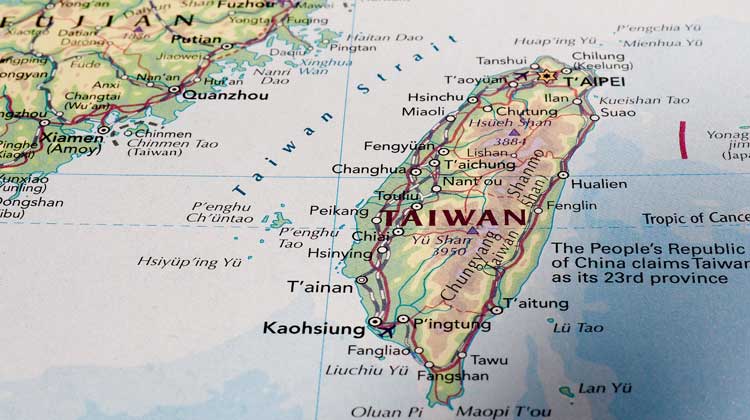WASHINGTON—China’s continued rise as a superpower has forced Taiwan to rethink its defense and economic strategies to respond to growing threats from the mainland. Taiwanese and American scholars discussed these developments and evaluated the current state of U.S.- Taiwan relations at the Heritage Foundation on June 12.

I-Chung Lai, president of the Prospect Foundation, a Taiwan-based public policy organization, said China’s main pressure tactic against Taiwan was relying on its strong presence in international organizations to isolate the small island.
“Many of the international campaigns allowing China to isolate Taiwan very effectively is precisely because of the Chinese nationals,” Lai said. “They are there, in those international organizations and through their presence, they’re able to prevent any single trace of Taiwan’s presence and its friendly support allies.”
According to Associate Director of the RAND Center for Asia Pacific Policy Scott Harold, China’s tactics to weaken Taiwan include inviting Taiwanese companies to work in China through preferential treatment, cutting off certain markets to Taiwan or even leveraging openings in Taiwanese media and spreading misinformation.
Harold also discussed Taiwan’s new defensive campaign involving more asymmetrical warfare tactics rather than keeping up with China’s military expansion. This includes preferencing smaller equipment such as truck-based anti-ship cruise missiles, mines, or helicopters rather than larger submarines and fighter jets.
“Taiwan has fortunately shifted in recognition of the China threat away from this static, one-to-one, toward a much more dynamic, survivable, lethal, agile force under its new, overall defense concept,” Harold said. “[This concept] attempts to not attach itself to big, vulnerable things … but instead to leverage things that are smaller and more mobile.”
Despite not having any formal allies, Harold and Lai agreed that Taiwan’s diplomatic relations with strategic nations such as the United States, Japan and, Australia are valuable in helping the island push forward its agenda on the international stage.
“Our diplomatic partners could help us to initiate a certain multilateral forum, which will boost our international network and contact with other countries that usually we cannot get in touch with,” Lai said.
Amid the growing threat of Chinese power, Taiwan’s Deputy Minister for Foreign Affairs Szu-Chien Hsu said U.S. and Taiwan relations are stronger than ever.
Hsu highlighted during his opening keynote speech the recently launched Indo-Pacific Democratic Governance Consultations, which works to advance good governance and human rights in the region while emphasizing the progress both countries have made together as diplomatic allies.
“What we have achieved exactly demonstrates that the enduring partnership between the U.S. and Taiwan is a unique and indispensable asset to the region,” Hsu said.
The Indo-Pacific Strategy affirms the United States’ commitment to stability and prosperity in the region through preparedness, partnership, and the promotion of a networked region.
Hsu also commended President Donald Trump’s administration’s recent sanctions against China to “rectify those economic behaviors …that deviate from the global norms.”
Taiwan also has been working to reconfigure its supply network to adapt to Chinese pressure and to push forth economic and strategic opportunities between the United States and Taiwan.
Total trade between the United States and Taiwan has increased by 14 percent so far this year, but Riley Walter, policy analyst on Asia Economy and Technology at the Heritage Foundation, said trade talks haven’t progressed much overall.
“Economically, there’s not much going on, at least in the government-to-government side. We haven’t had a trade investment framework agreement talk since 2016. Not in the entirety of President Trump’s administration so far have we had a TFA talk,” Walter said.
Despite the economic stalemate in terms of negotiations, Associate Research Fellow and Deputy Director of the Taiwan WTO and RTA Center Roy Chun Lee said Taiwan has been and continues to lead in the information and communication technology domain since the 1990s, by supplying intermediate products rather than commercial products.
Sandra Sadek is a staff writer for Homeland411.com
© 2019 Homeland411
Please subscribe to the Homeland411.com electronic newsletter.